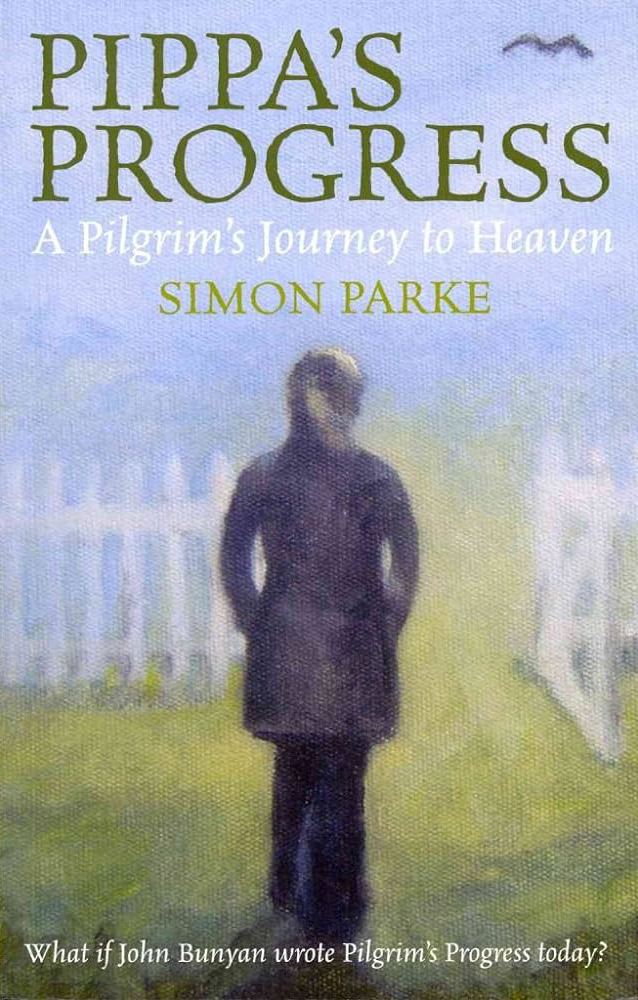
What if John Bunyan wrote Pilgrim’s Progress today?
Times have changed since John Bunyan wrote his classic Pilgrim’s Progress, telling of Pilgrim’s journey up Hill Difficult and through the Slough of Despond to the Celestial City. Yet people in their millions still seek meaning in their lives and speak of journeying towards a goal. Everyone on earth seeks a heaven.
This is the story of the journey of Pippa, a 21st-century Pilgrim. Simon Parke’ s witty, insightful and moving modern-day version follows the original’s premise of a pilgrim’s journey to heaven, but this time through the trials and temptations of our secularised, multi-cultural society. Pippa’s challenges along the way include the Rock of Subconscious, the Cliff of Hopelessness, Headspin’s Hallucinatory Mental Circus, The Garden of Sadness, the City of Socialmeja, the Fabulous Fame Game, the Sea of Identity and, of course, Heaven.
From the Introduction
Pippa’s Progress: A Pilgrim’s Journey to Heaven is an allegory, a story in which everything means something. Perhaps, for instance, you face a hard choice at the moment. If your life were an allegory, we might say you’re walking through the Valley of Decision. It would be a metaphor for your state, a way of understanding it. This valley has a particular meaning.
As a story form, allegory is a triumph of human development. It arose in ancient times amid growing psychological and spiritual sensitivity, a developing awareness of the divided will in every human soul. How could such inner struggles and joys be spoken of? One way was to use metaphors, to say ‘It’s like this’. And one of the best metaphors is the idea of the journey.
Of course, it’s very 21st century to be ‘on a journey’. The phrase is the calling card of every wannabe celebrity. But John Bunyan was there before them in the 17th century when he wrote Pilgrim’s Progress, and three centuries later CS Lewis followed him with Pilgrim’s Regress. (Remarkably, Bunyan’s work, written in a prison, went on to become the seventh-best-selling book of all time.)
Writing in another era, Lewis’s characters and settings differed from Bunyan’s – and Pippa’s Progress is different again. Times change. But all three stories share the idea of journey; of a seeker facing the joys and challenges of discerning and pursuing truth in the contemporary world. It’s exciting stuff.
So Pippa’s Progress is an adventure story. All human emotion is here, awfulness and beauty and the consequences played out. But it’s also a satire because there’s much nonsense in the world dressed as truth; so sometimes on the path we make a virtue of ridicule. Readers also say it’s a bit scary at times, a bit sad at times and sometimes very funny. Perhaps most of all, though, it’s a love story.
You’ll relate and react variously along the way. Pippa’s story may not be yours but her search is. As Pippa is told early in her quest, ’The goal of life is to become who we are… The path is not to take you from one place to another, but from here to a deeper here.’ Journey on with her through the light and the dark and you’ll make your own progress.
One Amazon reviewer said: ‘The book is about Pippa’s Journey, but it also invites every reader to travel alongside her to discover not only a truthful relationship with themselves but also the holding of something bigger and more mysterious altogether.’